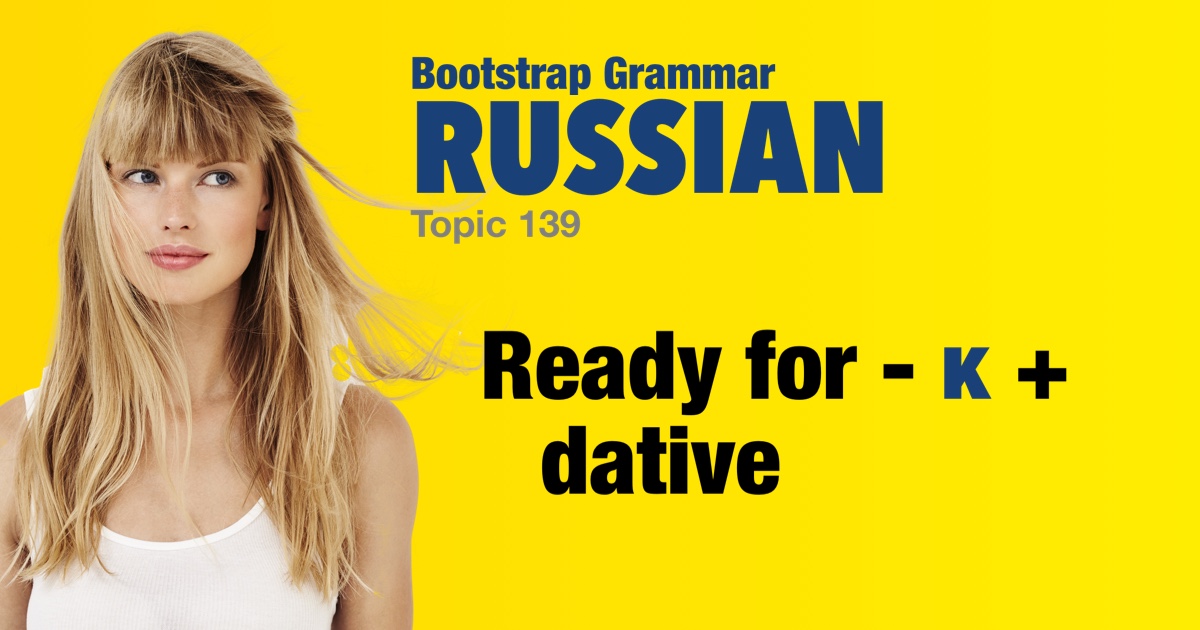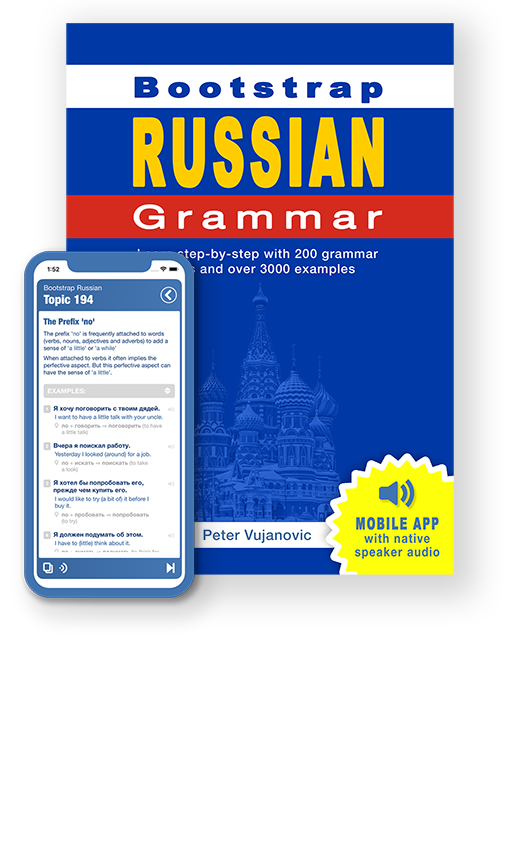Russian grammar - Ready for - к + dative |
|||
|
|||
We can also use the preposition к and the dative to say one is ready/prepared or getting ready/preparing for something. The pattern is: some form of the verb готовить (to prepare) with к + In these examples we use: • The adjective готов/-а/-ы which is the short form of the готовый (ready, finished). • The verb готовить/приготовить means 'to prepare' (or 'to cook') • The reflexive verb готовиться / приготовиться means 'to prepare oneself' -- подготовиться is also commonly used as the perfective particularly in reference to study or preparing for an exam. |
| Examples: | |
|
Я готов к школе.
I (male) am ready for school.
|
|
|
Я готова к работе.
I (female) am ready for work.
|
|
|
Она готова к путешествию.
She is ready for the trip.
|
|
|
Вы готовы к ужину?
Are you (formal) ready for dinner?
|
|
|
Будьте готовы к худшему.
Be (formal) prepared for the worst.
|
|
|
Он готовит студентов к экзамену.
He is preparing the students for the exam.
|
|
|
Пилот готовит самолёт к вылету.
The pilot is preparing the plane for take-off.
|
|
|
Я готовлюсь к поездке.
I am preparing for the trip.
|
|
|
Мы хотим хорошо приготовиться к шторму.
We want to prepare well for the storm.
|
|
|
Он ещё не готов к твоим извинениям.
He is not yet ready for your (informal) apology.
|
|
|
Важно начать готовиться к игре как можно раньше.
It is important start getting ready for the game as soon as possible.
|
|
|
Виктор хорошо подготовился к экзамену.
Victor prepared well for the exam.
|
|
|
Ты уже готовишься к каникулам?
Are you (informal) already getting ready for the holidays.
|
|
 |
|




